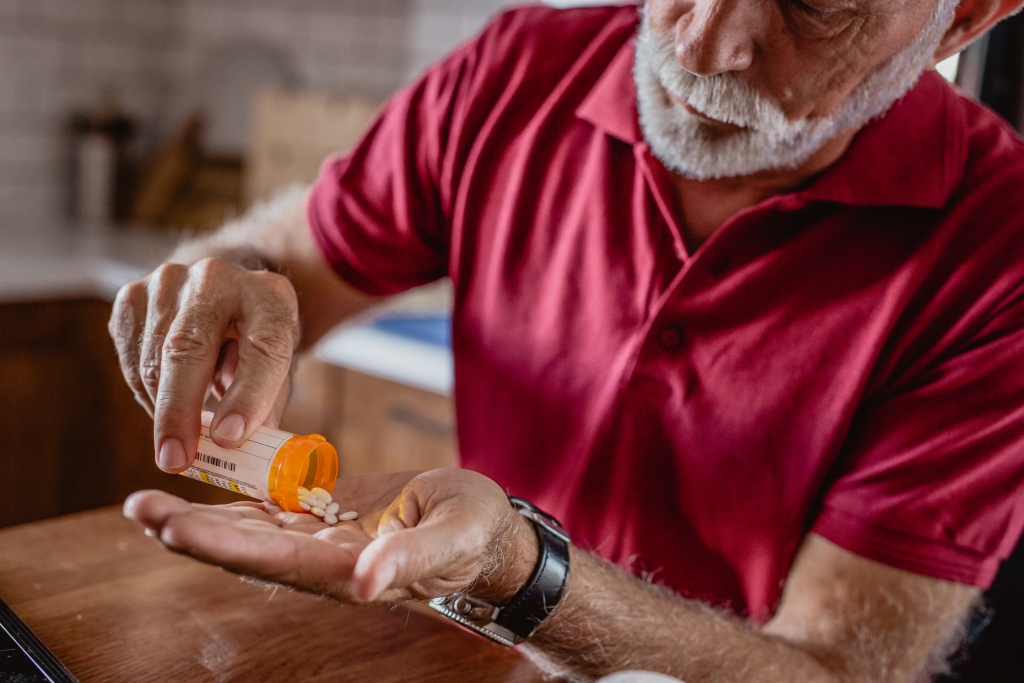By Elizabeth Steinberg Christofferson, PhD and Leah Grande, MA
Preparing for and receiving a kidney transplant, especially during the COVID-19 pandemic, can be an uncertain and overwhelming process. This article discusses tips to promote positive mental and physical health for yourself or your loved ones.
Preparing for a Transplant
There are many different emotions associated with deciding to go on the transplant list, and all of these feelings are normal and valid! You may feel excited about the potential for improved health and energy, fewer restrictions on what you can eat and drink (although you still want to eat a heart-healthy diet!), more time in your day, and changes in quality of life.7 Many patients also feel nervous about the risks of surgery. You may worry about remembering to take anti-rejection (immunosuppressant) medications at the same time every day or have concerns about medication side-effects.7 Many people also feel uncertain about the future and worry about the risk of rejection with their new transplant. Perhaps you have lost a kidney transplant in the past and have worries that the new transplant will not be successful.14 These feelings and worries are normal. Caring for your mental health and overall wellbeing are just as important as caring for your physical health—in fact, the two are very connected! Here are some actions that can help build resilience during this time:
- Plan and practice taking your medications on time every day. If you are taking few medications currently, you can start practicing with a sugar pill. Try out different strategies, such as using a timer, pillbox, or app.
- Take care of your health and keep your appointments with your physicians. You’ll continue to meet with your transplant team before your transplant as they monitor your overall health. Complete any required medical tests and procedures that they require before transplant. Stay organized with an electronic or paper copy of your medical records too.
- Build a strong relationship with your medical team. Learn everything you can about transplant surgery, your medications, and what life will be like post-transplant. Write a list of questions for your doctor, so you can share your concerns and learn about the transplant process.6
- Rely on your social supports. Share your thoughts and feelings with friends, family, and other important people in your life.1
- Make connections with the kidney transplant community through outreach services at the hospital.1 For example, peer mentors are often available through hospital transplant programs, transplant organizations, kidney organizations, and ESRD Networks.
- Meet with a mental health provider for help supporting your emotional wellbeing. Feelings of anxiety and stress are common during the transplant process. Your clinic social worker or a therapist can help to boost your resilience and provide tools to help with recovery and transplant success. Especially if you have a history of anxiety or depression, it is important to focus on your mental health to prepare for your transplant.9
- Work on quitting use of nicotine, alcohol, and other substances.9 Heavy drinking can harm your kidneys and liver and lead to kidney or liver failure. Other drugs can cause complications, kidney damage, heart failure and even death. Talk to your medical team about pursuing pre-transplant treatment for substance use, as well as post-transplant relapse prevention treatment. Every drug you take passes through your kidneys, so it is important to check with your doctor first before taking any new drug or medicine (e.g., pain medications, antibiotics).7
- Follow diet and exercise guidelines as prescribed by your medical team. It may be helpful to meet with a dietician and/or physical therapist. Also work on getting adequate sleep (7-9 hours for most adults), as sleep is a huge component of overall health and helps reduce stress, depression, and anxiety symptoms.
Finding a Donor and Being on the Waitlist
Once you’ve started to pursue a kidney transplant, it can feel daunting being on the transplant waitlist or asking someone to be evaluated as a living donor. It can also feel overwhelming keeping up with recent changes to the donation process and transplant surgeries due to the COVID-19 pandemic. These policies are constantly changing, and it is important to talk with your hospital to learn more.
Currently, there are over 92,000 people on the kidney transplant waiting list in the United States, and in 2019, there were 23,401 kidney transplants (16,534 deceased donor transplants and 6,867 living donor transplants) (based on data as of August 27, 2020; Organ Procurement and Transplantation Network, 2020). Due to the waiting list, some people also find it helpful to think about talking to family or friends about being a living donor.
However, it can feel scary or uncomfortable asking family or friends to be a living donor. Sometimes people worry about the potential health risks for a family member or friend if they were to donate an organ or worry about the guilt they will feel if their donor experiences negative outcomes. Others worry that they will feel obligated towards their donor or their donor will have a “hold over them” in the future.14 Even if you do not want to ask someone to be a donor, it can be helpful to share your story to make others aware of your need. Some people decide to share their story with their social groups, co-workers, places of worship, or local newspaper.7 The U.S. Government Information on Organ Donation and Transplantation at https://www.organdonor.gov/awareness/materials/print-brochures.html has a variety of educational brochures and information that you can share with potential donors. You can also check with your hospital transplant program, kidney organizations, and transplant organizations for their material. Additionally, some transplant centers participate in kidney paired exchange programs when a patient’s living donor is not a good match for them, so be sure to ask your transplant center about this option too. You also can view the video recording of Helping Your Donor Find You at https://www.dpcedcenter.org/education-webinar/having-your-donor-find-you/.
The financial aspects of chronic illness, End-Stage Renal Disease, dialysis, and transplant may also cause distress or challenges, and it is important to explore resources to decrease this stress. There are several organizations that help with the financial burden of transplant through organized fundraising for transplant recipients or living donors and additional resources that may be helpful in terms of the logistical and financial aspects of being a transplant recipient or living donor:
- National Foundation for Transplants: https://transplants.org
- National Kidney Foundation List of Additional Resources: https://www.kidney.org/patients/resources_Transplant
- National Living Donor Assistance Center: https://www.livingdonorassistance.org
- AST Live Donor Toolkit: https://www.myast.org/patient-information/live-donor-toolkit
You may not have the option of a living donor, or you may want to pursue options for both living and deceased donation. Following an evaluation at a transplant hospital, you may be placed on the United Network for Organ Sharing (UNOS) national transplant waiting list for a deceased donor. UNOS matches recipients with deceased donor organs in a fair and transparent system, using a combination of blood-type and antibody matching, time with kidney failure, and a few other factors that give people priority on the list. It can be anxiety-provoking and frustrating being on the waiting list and wondering when you might receive a call. Even after receiving a call and going into the hospital, you may find that the donor kidney is not healthy or that your body has a negative reaction to the donor’s blood.12 Anxiety and depressive symptoms can increase while being on the kidney waitlist; it is important to rely on your social supports, peer mentors, a therapist, and the psychosocial team at your center for help during this time.3
Preparing for Your Medical Stay
- Pack your bags early! Especially if you are on the deceased donor list, you’ll want to be prepared to leave as soon as you receive the call that there is an organ available. Bring your insurance information, a list of your medications, an extra 24-hour supply of medication and any other necessities.
- Also bring comfortable clothes, blankets, books, pictures, electronic devices and anything that would help you feel comfortable and occupied during your hospital stay.6
- Due to new safety precautions for COVID-19, many hospitals are limiting the number of visitors during medical stays. Make a plan with your medical team, family and friends about who can visit you in the hospital. This can be a difficult decision, and many patients and families feel sad that they cannot access their full social supports.
- Make a plan for who can drive you from the hospital and care for you when you return home.6 During the COVID-19 pandemic, it is especially important to think carefully about your interactions with others following transplant. During the initial post-transplant period, patients take higher steroids and are most at risk for having a compromised immune system. Many people are careful to limit their exposure to COVID-19 infection, even though this social isolation during recovery can be challenging. You can learn more about transplant and COVID-19 on the American Society of Transplantation website: https://www.myast.org/covid-19-information.
During Your Medical Stay
Being in the hospital can feel stressful, disorienting, boring, and uncomfortable. It’s okay to feel sad or upset. Having limited visitors during the pandemic can also feel lonely and isolating.
- Talk with a member of your psychosocial team. You can ask about music and art therapy services or visits from a therapy dog.
- Connect with friends and family virtually when you feel ready for it, and also get plenty of rest. Remember that while your friends and family may all reach out to you, you aren’t obligated to talk to them until you’re ready. Some recipients ask a family member or friend to send out updates to their primary network so that they don’t have to worry about this as they recover in the hospital.
- Share your needs and advocate for your wellbeing. Your medical team wants to hear your concerns and to make sure you are comfortable.
- Practice meditation and mindfulness strategies to cope with pain and stress and improve sleep.5 Check out smartphone apps like Breathe2Relax, Headspace, Calm, and Ten Percent. These strategies are also helpful to continue after transplant at home!
Life After a Transplant
Take time to care for your mental health. Although mental health can improve after transplant,13 you can still be at risk for anxiety and depression.10 About one in four people with a kidney transplant meet criteria for depression.2 Coping with illness and going through a transplant can be very stressful and sometimes people experience symptoms of post-traumatic stress or PTSD.4,11 It is important to care for your mental health because it affects your physical health as well. Feeling depressed and down is related to additional health problems, such as forgetting to take medications or loss of the transplant (graft failure).2 It may also be helpful to talk to your provider and ask for help from others if you notice problems with your thinking or memory. Chronic kidney disease is related to some cognitive problems over time, but these can improve after surgery.8 However, some problems with learning and memory may remain. It is important to connect with your social supports and medical team if you feel memory problems may be affecting your adherence to medications.
Additionally, some people experience a range of emotions towards their deceased or living donors. Recipients may feel extreme gratitude, but also guilt, especially if their donor was a deceased donor. It is important to discuss these thoughts and feelings with your social supports and your psychosocial team (social workers, psychologists) at your center. Organ procurement organizations (OPOs) can help direct a thank you note to the deceased donor family, if you feel that this would be helpful or important for you. However, there is no expectation that you must be in contact with your deceased donor family, and everyone has their own individual response to the process and journey of being a recipient or a donor.
It is important to take your medications every day and at the same time. It can help to:
- Set a recurring alarm on your phone, use a smartphone app, or use a pillbox. The MediSafe, Pill Reminder, RxRemind, and Round Health apps are a great way to set up your medication reminders.
- Write down the days and times you take your medicine on a calendar or in a noticeable location.
- Place medications where you can see them (but out of reach from children or pets).
- Have an accountability partner (family member, spouse) who checks in with you about how you’ve been doing with taking your medication.
- Schedule your medications around daily routines and use pairing of routines to establish habits (e.g., always taking your medication before bed and after you brush your teeth).
- Keep a small supply of your medication at work, in your bag, or other places.7 Store medication at room temperature in a protected container.
It is a marathon, not a sprint! Here are some factors for long-term success:
- Meet with your healthcare team regularly. Ask questions and communicate your needs and concerns.
- Build strong social supports and ask for help when you need it. Meet with a therapist or mental health provider to support your emotional wellbeing.
- Eat a heart-healthy diet. Strive for a low fat, low salt diet and drink plenty of fluids. Depending on your medications or if you have diabetes or other health conditions, you may still have some dietary restrictions.
- Exercise regularly and maintain a healthy weight. Ensure adequate sleep. Continue relaxation, meditation, and mindfulness practices. Even one minute of deep breathing can be so helpful during a stressful moment!
- To learn more about kidney transplant FAQs and how to stay healthy after a transplant, you can use the Care After Kidney Transplant smartphone app.
For prolonged or more significant mental health difficulties before, during, or after kidney transplant, know your resources in case of a crisis or for getting established with a mental health provider:
- Ask your psychosocial providers (social workers, psychologists) through your transplant team to help you find a local mental health provider, call your insurance company for referrals, or use Psychology Today. Many providers are offering telehealth because of the COVID-19 pandemic.
- Crisis Chat: 1-800-273-TALK
- American Psychological Association, Centers for Disease Control and Prevention, and National Alliance on Mental Illness websites
Dr. Elizabeth Christofferson is an assistant professor in the Departments of Psychiatry and Pediatrics at the University of Colorado School of Medicine and a licensed clinical psychologist at Children’s Hospital Colorado. She is the clinical director for psychology for the Solid Organ Transplant Teams in the Kidney Center at CHCO.









